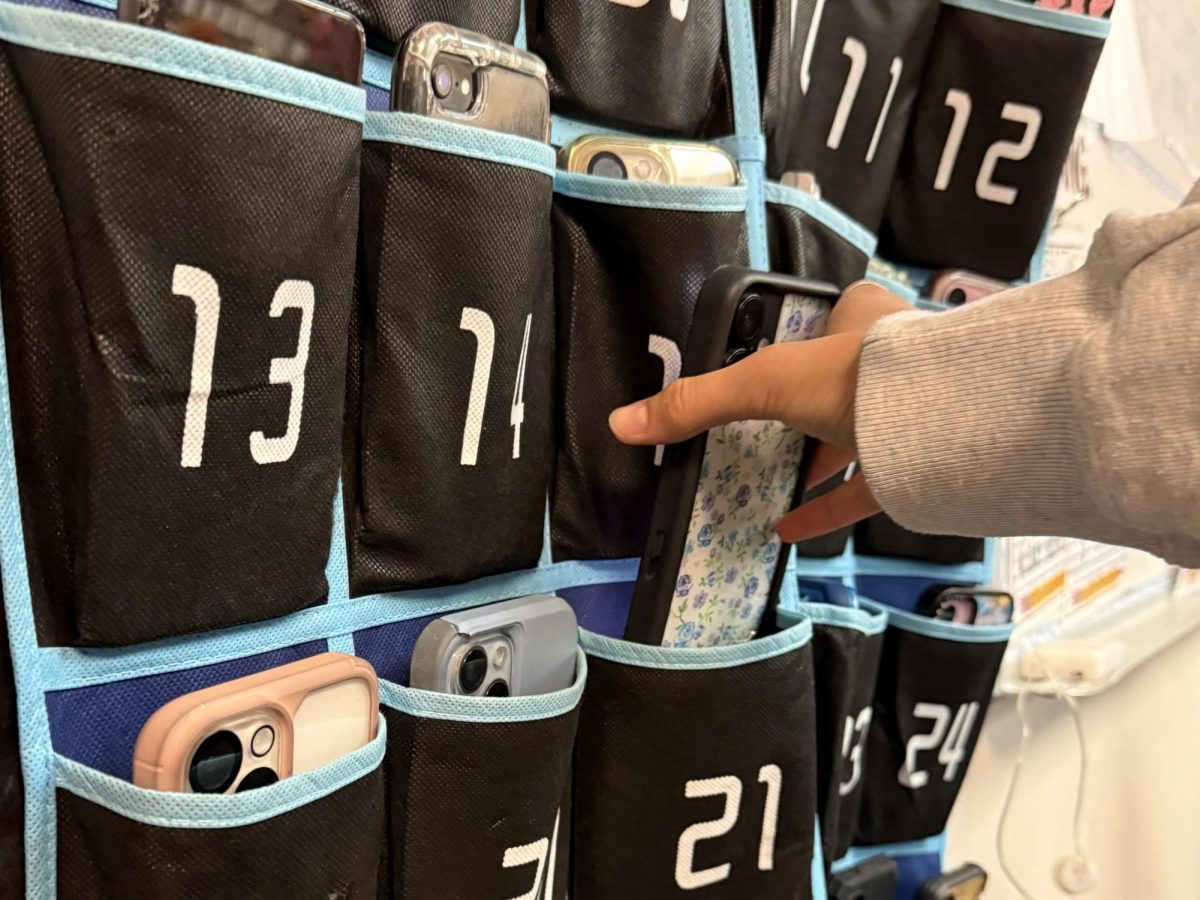A school rule that started in public schools throughout Arizona has now expanded into a statewide law. The decision to make the ban universal calls attention to the growing concern among educators surrounding cell phones, something that has become the single largest classroom distraction in schools today.
The law, which requires students to store their devices in phone pockets during class time, was created to restore focus to students at OHS and improve the academic performance of those struggling with the addictive devices. Now, it has sparked mixed reactions from students and staff alike.
“The subject came up in a staff meeting about the possibility of different ways we could approach cell phone carriers, and multiple ideas floated,” said Richard Weyker, government and economics teacher. “I pushed very heartily to the case that this is gonna make the lives of teachers a lot easier and, eventually, also improve the quality of teachers themselves.”
For many students, however, the ban feels like an unnecessary clampdown. Some argue that there might be larger issues among schools to focus on than students texting in class.
“I think it is one of the least pressing issues that the state could’ve taken into account,” said Diego Arevalo, junior. “I feel like there are definitely bigger things to worry about than cell phones being used in class, but it’s not like I don’t understand the whole student preparation part of it.”
Other students can admit that while the restriction is frustrating, the ban has made a difference in how well they are concentrating on the material given to them in the classroom.
“I’m on my phone all the time, I can’t even lie, but I think I’m more focused in class when my phone is up,” said Georgette Roth, sophomore.
Teachers around OHS argue that consistency is exactly what makes the new policy the most effective and the most successful. Without the constant reinforcement in the classrooms, the starting stress that teachers face can increase just from one inanimate object. The classroom burden of cell phones can often be compared to a “mental backpack” that teachers carry every day.
“When you start as a teacher, that mental backpack is full from the moment you step in a classroom. Everything else is just more and more weight to an already full bag, like cell phones,” Weyker said. “I can speak for myself, personally, that it’s one thing that’s making doing our jobs significantly easier. We can focus more on the instruction than monitoring your behavior.”
Still, uneven enforcement has become a sticking point in some classrooms around OHS. Some teachers strictly require phones to be pocketed, while a few others allow students to keep them within reach, creating frustration for students and staff.
“There’s one teacher that doesn’t really enforce it, and it’s probably why I’m not passing that class right now,” said Chris Ho, senior.
OHS Staff have expressed similar concerns with the inconsistent reinforcement of the new policy, which can reduce the effectiveness and the entire system that has been put in place for student success.
“It’s so frustrating for me because that creates discontent with students who start thinking that this teacher isn’t doing it, so no teacher should do it,” Weyker said.
While the cell phone debate remains ongoing, OHS can stand as a model for how the ban can play out across Arizona’s public schools. For some, it is a frustrating rule that limits social freedom. For others, it is a necessary step toward a more focused and beneficial educational environment. Whether welcomed or resisted, the new law has already shown how it can not only reshape the daily lives of teachers but also provide more opportunities for students’ futures across the state.
“Even though students may not like it, putting their phones in the pocket is for the best,” Roth said, “It is important to have undivided attention on the curriculum.”



